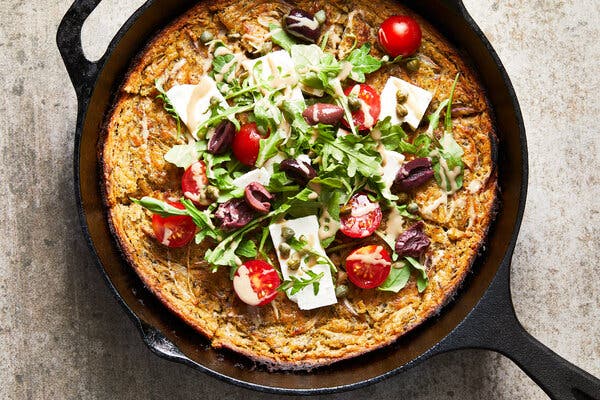Crisp on the outside, tender on the inside, savory farinata brings a taste of the Mediterranean coast to your kitchen.
Listen to this article · 3:24 min Learn more
Ruth Rogers, a founder of the famed River Cafe in London, brought cash to a parking lot in Pisa, Italy, to meet a vendor she connected with through a Ligurian acquaintance.
It wasn’t an illicit deal; she was merely seeking a replacement for the frying pans she’d been using to make farinata, a crisp-creamy pancake made from just chickpea flour, olive oil, water and salt. Nearly a decade later, that specialty pan made from dimpled copper and tin, and meant specifically for farinata, remains in rotation at the River Cafe, where it is used to turn out the savory chickpea dish almost daily.
Farinata has a long history as a street food in a corner of the Mediterranean coast stretching from Liguria to the French Riviera, and its preparation varies little despite the different names by which it goes: belecauda, or “nice and hot,” as it should be served, in Piedmont; socca in Nice; cade in Toulon; cecina; fainá; and fainè.
Recipe: Farinata (Herbed Chickpea Flour and Onion Pancake)
Fausto Marino, a third-generation Ligurian miller at Mulino Marino, which supplies the River Cafe with fresh chickpea flour, said that local legend attributes farinata’s origins to a storm that raged in the summer of 1284. As a marine battle roared between the Genovese and Pisan republics, waves supposedly encompassed a Genovese ship, rupturing containers of chickpea flour and olive oil. The tumult was said to have mixed these ingredients with saltwater and produced an accidental batter that baked in the sun — and gave the Genovese a new recipe to complement their military victory. Another unverifiable legend goes that Roman soldiers cooked the first farinate on their shields. Dubious as those origins may be, it speaks to the region’s longstanding appreciation for farinata.
Thank you for your patience while we verify access.
